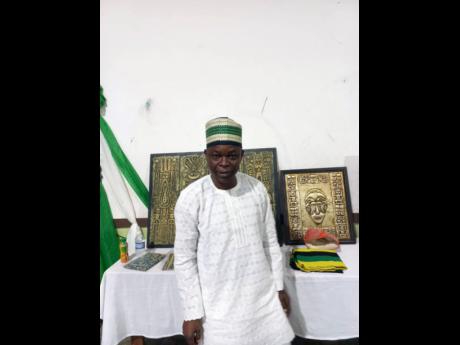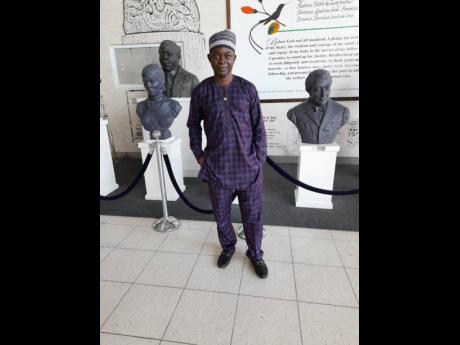Alliance of Yorubas in Jamaica to launch on Saturday
On Saturday, July 15, at 5 p.m., the Alliance of Yorubas in Jamaica (AYJ) will be launched inside St Andrew High School’s Margaret Gartshore Hall at 10 Cecelio Avenue, off Half-way Tree Road. Dr Maureen Tamuno, Nigeria’s high commissioner to Jamaica, is expected to be in attendance.
The event will also consist of a Yoruba cultural exposition featuring Yoruba delicacies, music, dance, and fashion show; a mock coronation of a king; a mock wedding, and ewi, the art of oral poetry and chanting for religious and entertainment purposes. It promises to be an evening of mingling, networking and reconnecting.
The Yoruba is the second-largest ethnic group in Nigeria, officially named the Federal Republic of Nigeria. The others the Hausa, the Igbo and the Fulani, with the official languages being Hausa, Yoruba, Igbo and Fulani. Nigeria, located is west Africa, with a population of over 230 million people, is Africa’s most populous country, and the sixth most populous in the world.
Hundreds of these peoples were transported from the early 1500s to 1838 to Jamaica to work on European-owned plantations in the brutal institution of slavery. Without a doubt, present-day black Jamaicans are descendants of west Africans who were brought here forcibly. Yet, even after Emancipation in 1838, West Africans, including the Yorubas – found in western Nigeria, the Ivory Coast, Togo, Ghana and Benin – kept coming.
According to Wasiu Abayomi, president of the AYJ, there are also Yorubas in Cuba, Chile and Brazil. But, the largest population of just over 100 seems to be in Jamaica. They are mainly medics and educators contributing to Jamaica’s GDP, said Abayomi, in what he referred to as “brain gain”. Jamaica is benefiting from educated professional Yoruba ex-patriots. They were working all over the country with no regular contact with one another.
COVID-19 changed that. It has been a “blessing” Abayomi asserted. Because of the lockdown policies and protocols, people were now meeting online and widening their communication reach. So, the idea to “come together and provide support for one another” was born. An association, similar to what the Igbos in Jamaica has, was needed. This was last year, and now the association with a constitution is a reality.
It is “to bring us together to promote unity, cohesiveness among Nigerians and beyond … to assist one another, to promote the image of the Yorubas, to creative awareness in the wider world, especially with the growing of the Nigerian community in the Caribbean”, Abayomi, who has been living in Jamaica for 22 years, told The Gleaner.
“We, the Yorubas in Jamaica, desiring to trust and enjoy the fellowship of one another, desiring to promote the interests and welfare of one another, committed to and guided by deep sense of justice and honesty, individually committed to excellence in performance, and convinced that we can build a stronger economic, political, and social community in Jamaica, and around the world, do pledge to promote the unity, progress, and empowerment of the Yoruba in Jamaica, and for the peaceful coexistence based on justice. We hereby resolve to constitute into the Alliance of Yorubas in Jamaica,” the preamble to the AYJ Constitution says.
Embedded within all of that are “trust” and “fellowship”, Abayomi said, making it clear that “empowerment of the people is key”. Meetings are mainly held online with the hope that there will be more face-to-face gatherings with the creation of regional branches to be led by chairmen; the national headquarters is to be established in Kingston. The alliance, Abayomi said, is transformative, keeping a continuous link between generations of Yoruba peoples in Jamaica.


